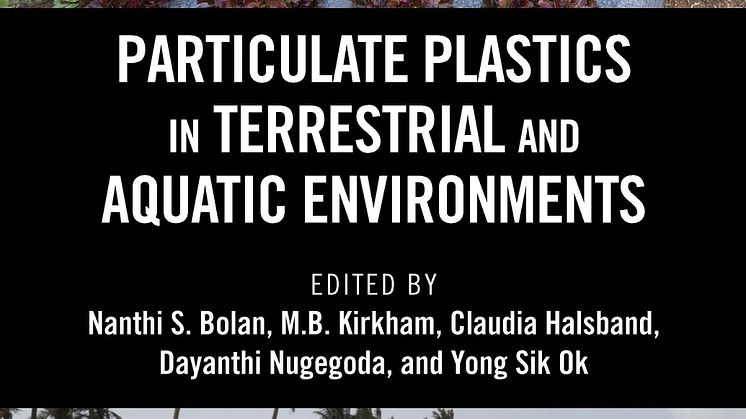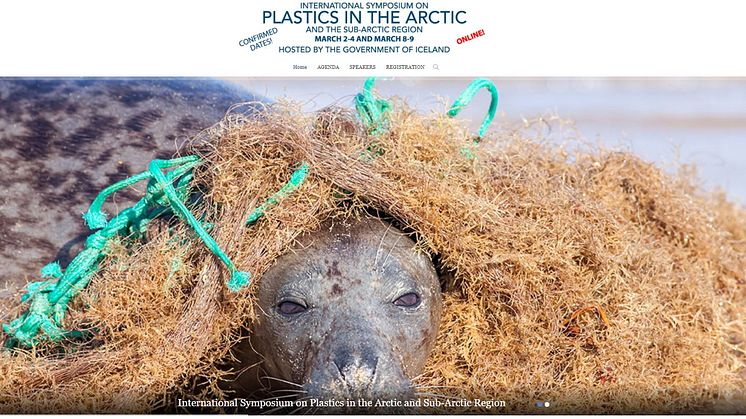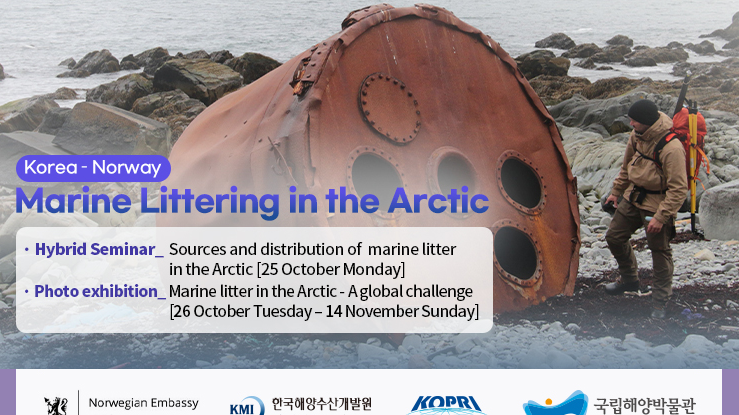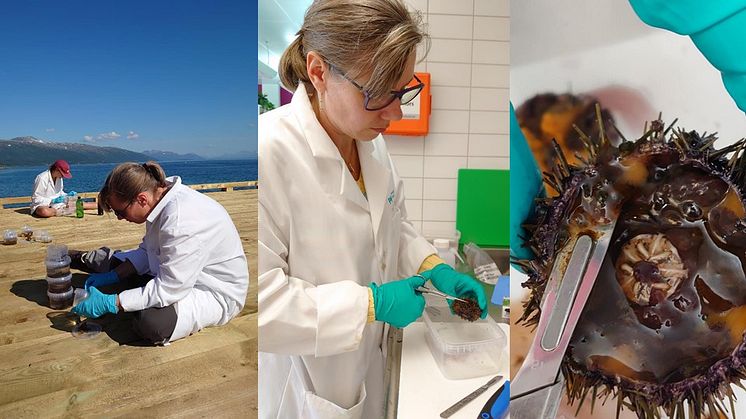
Pressemelding -
New book on plastics - impacts on terrestrial and aquatic environments
Akvaplan-niva scientist Claudia Halsband is a renowned expert on plastic pollution. She has recently co-edited a book on the knowledge status of plastic pollution in both terrestrial and aquatic environments. Halsband says: "Most research has focused on marine litter in the past decade, while the sources of plastic waste at sea are on land. It is therefore great to see the compilation of research efforts in this book where both aspects are addressed." While plastic was perceived as a blessing for humankind for almost a century, offering benefits not found in nature, the durable material now seems to turn into a curse, as plastic waste piles up and pollutes fields, rivers, and oceans. But how does this happen? And what properties make plastic particles problematic? Are they toxic? To whom? Is this the same everywhere on earth? And what can we do about it, starting today?
A team of five editors from Australia, USA, Norway, and South Korea has assembled a group of 82 international experts to compile the answers and highlight the knowledge gaps. The result of this effort is the book "Particulate Plastics in terrestrial and aquatic environments" published at CRC Press. The book has 25 chapters in five sections: Section I provides fundamental understanding of the various sources of particulate plastic inputs to soil and water. Section II continues to describe the various physical and chemical properties of particulate plastics in terrestrial and aquatic systems, necessary to understand transport pathways and resulting distribution patterns. Section III discusses the ecotoxicity of particulate plastic. Section IV presents case studies that give an overview of particulate plastic contamination in terrestrial and aquatic ecosystems in selected regions, such as Thailand, Japan, and New Zealand. Finally, section V describes various approaches to managing particulate plastic waste to show ways out of the plastic crisis. It is concluded that there is an urgent need for innovations in particulate plastic waste management and that these must include source reduction, i.e. consuming less, improvements in infrastructure to collect plastic wastes, and value addition by increasing the utilization and commercial value of waste resources through the creation of new products and applications, including building materials and fuels. "This book will be an interesting read for everyone interested in the complexities of plastic pollution, especially students of earth, environmental, marine, and soil science, as well as environmental scientists, and environmental regulators" concludes Claudia Halsband.
In addition to co-editing the book Halsband contributed to chapter 15 together with co-author Andy M. Booth (SINTEF Ocean). This chapter gives an overview of plastic impacts on marine organisms, ranging from microbes via plankton and benthic animals to the higher trophic levels, such as fish, seabirds and marine mammals. Her own research focuses on microplastics and small marine animals likely to ingest these. "We know that most animals and even unicellular microorganisms take up plastic particles in laboratory settings" says Halsband. "What we do not understand very well yet, is how plastic items degrade in oceanic conditions and what that means for their toxicity. There is also little certain knowledge on how often small organisms encounter harmful concentrations of micro- and nanoplastics in nature".


